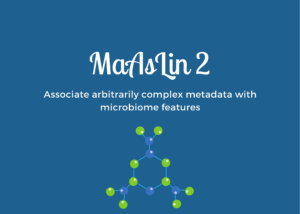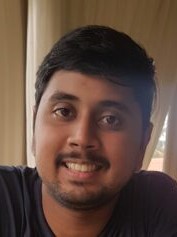Biostatistics in Boston: New experiences, new techniques, and a glimpse into the work culture in a new environment

A report from Rahul Unni, doctoral researcher at MPI in Plön
My one-month visit to the Huttenhower group in the T H Chan School for Public Health, Boston, USA, from 05 November to 07 December 2022, was a great opportunity for me to learn new techniques and interact with an excellent group of scientists working in different fields adjacent to my own. I was able to work on one of their projects to get familiar with the tools and then use them in my own project. I am grateful that I got this great opportunity during my PhD.
During the first half of my time there, I worked closely with one of the smaller groups within the Huttenhower group that was studying how the dog microbiome and metabolome changed under different diet conditions. They had obtained metagenomic and blood and serum metabolomic data from dogs before and after a switch in diets from a high-carbohydrate diet to a high-protein or high-fat keto diet. I therefore had the opportunity to learn new statistical and bioinformatic tools to explore this dataset. I used MaAsLin2 and HAllA to sort through these datasets and find metabolites and bacterial species that were significantly associated, either with other metabolites or with other bacterial species.
Apart from learning how to use these tools, I also had great learning experiences in working on this project. For instance, a particular challenge in this project was the high number of associations that were detected by HAllA between serum and fecal metabolites, simply as an artefact of similar kinds of metabolites being present in the two datasets. To overcome this challenge, I learned how to filter out metabolites based on whether they were present only in serum, only in the feces, or in both. I was then able to run these filtered metabolites through HAllA and MAsLin2 to get more informative results about which metabolites underwent drastic changes in abundance after diet switches. Such discussions with experts in metabolomics, who were familiar with the datasets, helped me develop a better mental framework for assessing large datasets, which is something I did not have much experience with.
In the final parts of my lab visit, I used the techniques I learned in the first part to explore the IBDMDB dataset. First, I used two sets of data: the HMP2 project and the PRISM project (metabolomics data from UC and CD patients and healthy controls). I was able to use the statistical tools to explore what metabolites were significantly different between UC and CD patients, compared to healthy controls. In addition, I also was able to explore the IBDMDB dataset to search for pathways and enzyme classes that were differentially abundant between IBD patients and healthy controls. The aim of these exploratory tests was to see if any of the metabolites, pathways, or enzyme classes could be linked to our own findings from P10 of miTarget. Although I did not have the time to complete these analyses to get any significant results, I do still have access to these datasets and plan on continuing working with them, especially in the light of new results we may get from our own in vitro experiments with E. coli strains adapted to the murine IBD gut.
Apart from the scientific progress I was able to get from this visit, I was also able to be part of a novel work environment and see first-hand how a different working group in a different environment functioned. The work culture there is very different from what I am used to, and it was a very useful experience to be part of it for a month. Because the Huttenhower group is a rather large one, their scheduling and progress reports rely on smaller groups within them meeting very often, sometimes with and sometimes without the PI. Such small team meetings provide an opportunity to discuss even very minor technical details of your work in great detail with niche experts who can solve these problems. Getting an insight into such a work schedule was a new and educational experience for me.
Apart from sightseeing in and around Boston, I was lucky enough to be able to see a few other US cities too, including New York, Chicago, and Phoenix, because I have extended family who are settled there. Spending Thanksgiving weekend with family is a very nice American tradition, and I was glad that I got to experience it too!

